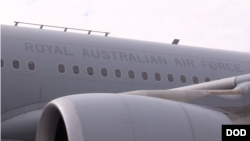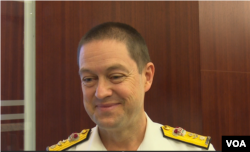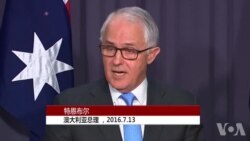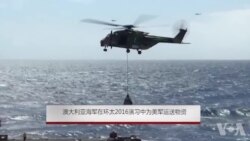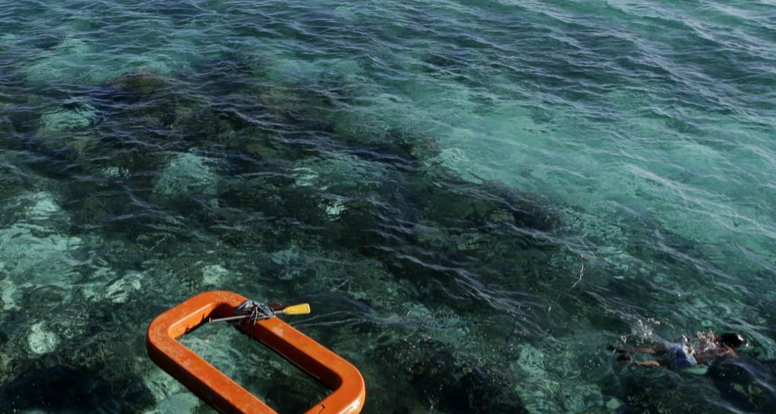中国官方媒体前不久抨击澳大利亚支持南中国海问题国际仲裁,并扬言会对堪培拉介入南中国海事务采取报复行动甚至军事打击。美国之音黎堡最近书面采访了澳大利亚皇家海军驻美国联络官彼得·利维准将(Commodore Peter Leavy),谈到了中国发出的军事威胁以及美国与澳大利亚的军事同盟关系。
美国之音:澳大利亚称这项仲裁应该得到尊重和实施。从军事上说,澳大利亚能够而且会采取什么行动来强化这一立场?是否会包括在南中国海行使航行和飞越自由权?
利维准将:澳大利亚在这个问题上的立场一直不变而且明朗,并在该地区广为人知。我们不在南中国海领土主权争端中选边,但是,我们很希望看到地区的和平与稳定、对国际法的尊重、贸易畅通无阻,以及在南中国海的航行和飞越自由。
澳大利亚已经敦促菲律宾和中国遵守仲裁庭的裁决。这是一项最终裁决,对有关双方具有法律约束力。跟许多国际伙伴一样,澳大利亚将注视两国如何对裁决结果做出回应。我想这是对该地区如何依据国际法和平管控分歧的考验。
澳大利亚国防军跟南中国海周边国家保持了强劲的国际交流项目,这是我们长期以来对地区安全做出的一项贡献。这包括双边和多边联合军事演习、靠港访问、海上侦察和舰船过境航行。跟所有国家一样,澳大利亚依据国际法享有航行和飞越自由。澳大利亚舰船和飞机会继续行使这些权利,包括在南中国海这么做。
澳大利亚国防军“有实力”保卫国家安全
美国之音:澳大利亚公开受到中国官方媒体发出的军事威胁。你会认真对待这项威胁吗?澳大利亚有多大的能力保卫自己?
利维准将:我看到了中国媒体的一些评论,但我认为那是中国媒体当中的一些极端观点。我认为它们不代表中国人的总体观点,也没有反映澳大利亚和中国在许多领域保持的非常好的关系。事实上,我们两国的海军刚刚参与了在夏威夷举行的环太军事演习。我也曾亲自参与中国海军和澳大利亚皇家海军举行的海上联合演练。
澳大利亚国防军装备精良、训练有素和受益于良好的指挥。它会随时随地依照政府的指令为了国家利益采取行动。
澳新美安全条约是美澳军事合作基石
美国之音:您认为美国会帮助澳大利亚自卫吗?还需要做些什么去强化两国的防务关系呢?
利维准将:澳新美安全条约是澳大利亚与美国之间的一项主要安全协定,让我们两国能互相帮助、共同应对冲突。在发生911恐怖攻击之后,澳大利亚援引了这项条约,向美国提供了支持。我们两军合作良好,共享许多装备和作战程序,共用关键的作战和后勤设施。发生危机时,澳大利亚和美国有能力聚到一起,并立即有效展开行动。过去一些年里,不论是在事先安排的演习中还是在应对真实事件时,这一点都得到了展示。
美国之音:你希望看到美国、日本和澳大利亚三国防务同盟取得什么进展?
利维准将:需要澄清的是,虽然澳大利亚、美国和日本具有相同的价值和战略利益,但不存在三国防务同盟。澳大利亚和日本都跟美国有各自但一致的同盟关系。同样重要的是,我们三国共享的战略利益并不具有排他性,因为其他许多国家也有这些利益。澳大利亚总是会跟美国和日本合作,但也会跟中国、印度和所有其他海洋和地区国家一道,共同推进海上安全。我们都希望贸易交往能在全球范围内和平与稳定地穿流,特别因为我们都生活在一个互通的、全球化世界里。世界各国海军以透明的方式越多合作,我们就能越多地建立相互了解和互信,更好地减少误会、降低紧张气氛甚至冲突。为增进国际海上安全所建立或者正在建立的各项倡议对所有国家都是开放的,包括海上意外相遇行为准则。我强烈鼓励所有国家都来支持。我们需要共同努力,在南中国海和全球各处建立海上安全。这些倡议中没有一项是为了对付某个国家或某组国家的。我们都需要一起努力,帮助维护过去几十年来让澳大利亚、中国和所有国家都受益的全球贸易制度。
英文原稿
Intro: Chinese official media has threated to seek revenge, including possible military strike, against Australia for Canberra’s enthusiastic support of recent international tribunal ruling on the South China Sea. In August, 2016, VOA conducted a written Q & A with Commodore Peter Leavy, Australia’s Naval Attache to the United States. Here are the questions and answers in full.
VOA: In military terms, what can and will Australia do to solidify its view that the South China Sea tribunal ruling should be respected and implemented? Will it include freedom of navigation sailing and flying in the South China Sea?
Commodore Leavy: Australia’s position on this issue has been consistent and clear and is well known throughout the region. We don’t take sides on competing territorial claims in the South China Sea, but we have a strong interest in regional peace and stability, respect for international law, unimpeded trade, and freedom of navigation and overflight in the South China Sea.
Australia has called on the Philippines and China to abide by the tribunal’s ruling, which is final and legally binding on both parties. And like many of our international partners, Australia will watch how they respond to the outcome. I expect it will be a bit of test for how the region manages disputes peacefully and in accordance with international law.
The Australian Defence Force has maintained a robust program of international engagement with countries in and around the South China Sea, as part of our longstanding contribution to regional security. This includes bilateral and multilateral military exercises, port visits, maritime surveillance operations and ship transits. Australia, like all countries, has a right under international law to freedom of navigation and freedom of overflight. Australian vessels and aircraft will continue to exercise these rights, including in the South China Sea.
VOA: Australia is openly threatened with military strike by Chinese official media. Do you take that threat seriously? How capable is Australia of defending itself?
Commodore Leavy: I have seen some of the Chinese media commentary, but I think these are extreme views within some sections of the Chinese media. I don’t believe they represent the general Chinese view, nor do they acknowledge the excellent relationship Australia and China share across many areas. In fact, our navies have just both participated in Exercise RIMPAC in Hawaii and I have personally been involved in bi-lateral training activities at sea between the PLA-N and RAN.
The Australia Defence Force is a well equipped, trained and led military that will act in accordance within Australia’s national interests whenever and wherever directed to do so by our government.
VOA: Do you believe the United States will help defend Australia? What needs to be done to boost bilateral defense ties between the two countries?
Commodore Leavy : The ANZUS Treaty is the key security agreement between Australia and the United States and allows both our countries to assist each other in times of conflict. The treaty was first invoked in 2001 when Australia supported the United States after the tragic attacks of September 11. Our two militaries work very well with each other and we share a lot of common equipment, procedures and key enabling and support functions. Australian and US units are able to come together in a crisis and almost immediately start working effectively. This has been demonstrated many times in recent years, both in planned exercises and real-world events.
VOA: What do you hope to see in the development of US Japan and Australia trilateral defense alliance?
Commodore Leavy: To clarify, while Australia, the United States and Japan share common values and strategic interests, there is no trilateral defence alliance between our countries. Australia and Japan have separate, but common alliances with the United States, which also underpin our trilateral defence cooperation. It is also important to recognise that the strategic interests we share trilaterally are not mutually exclusive – many other countries have these interests too. Australia will always work with other nations such as the US and Japan, but also China, India and all other maritime and regional powers to progress collective security at sea. It is in all our interests that trade flows peacefully and predictably around the globe, especially in the interconnected and globalised world in which we all now live. The more the navies of the world operate together, in a transparent way, the more we will build understanding and confidence between each other and the less likely there is to be a mis-communication that leads to tension or even conflict. The initiatives that are in place, or being developed, to further international maritime security, such as the Code for Unplanned Encounters at Sea (CUES), are open to all countries and I strongly encourage all nations to support them. We need to collectively work together to build maritime security not only in the South China Sea but around the globe. None of these initiatives is designed to work against any particular nation or group of nations. We all need to work together to help maintain the global trading system that has served all nations, including Australia and China, so well over the last few decades.




